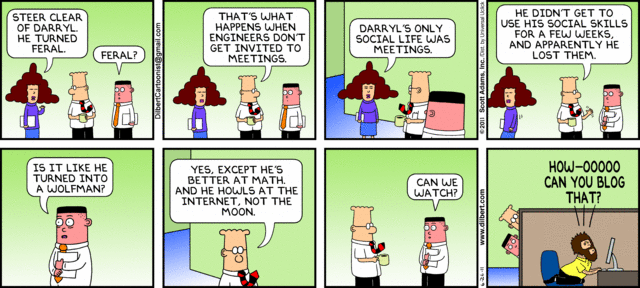"Like" youth and sex
In confessing her like-aholism ("My Love Affair With 'Like'", Jezebel 6/26/2011), Erin Gloria Ryan framed the problem in terms of gender roles:
Any girl who's been teased for middle school nerdery has likely developed a long standing aversion for the feeling of being excluded for being too smart or opinionated. This is the way that socially acceptable people talk. This is the way that pretty people talk. Women are taught that it's more important to be pretty and socially accepted than it is to be smart. Ergo, like.
She's talking about the discourse-particle like, as in her example "so, like, my sentences, like, sound like this. And I, like, sound dumber than I actually am". She reports a student evaluation that also noted the stereotypical association with youth: ""She says 'like' more often than a valley girl".
Are these stereotypes accurate? Is the discourse-particle like really characteristic of younger women? Today's Breakfast Experiment™ looks into the matter, and finds (in a limited and superficial survey of proxy measures) that one part of the stereotype is apparently valid, but the other is not.
Read the rest of this entry »


